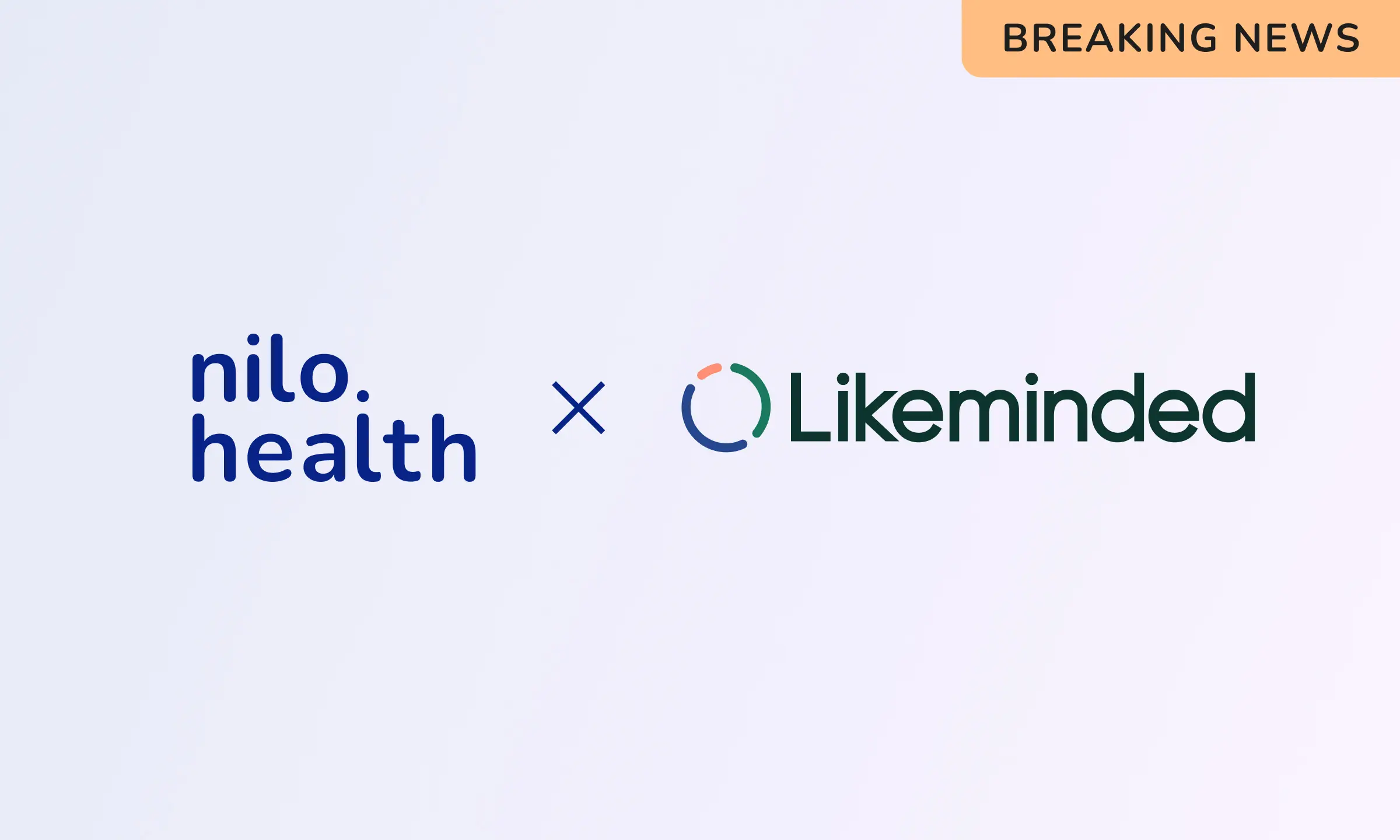Empathic leadership is crucial for the mental health of employees and managers. External influences such as digitalization, crises and constant change increase the pressure on all of us and leave many managers exhausted. Concrete solutions – from preventive measures and self-reflection to support through Employee Assistance Programs (EAPs) – strengthen managers and promote a healthy, successful work culture. In this article written by our Co-Founder and Co-CEO Ines Räth, we explore the lay of the land.

Do bosses really have more influence on our mental health than family, friends or partners? A new survey announces that for 69% of employees, this is the case. Just in case you needed more evidence on how crucial it is for managers to lead their team in an empathetic and goal-oriented manner!
But it is precisely these managers who face enormous challenges. Many of them feel increasingly exhausted and stressed. The last few years have taken a toll on all of us, and managers are no exception. They are under double pressure – from above and from their teams.
The idea that stress is simply part of the job and that you have to learn to endure it is fortunately on the retreat. Companies are increasingly recognizing that they need to take action to counteract the growing risk of stress, burnout and long periods of sick leave. Empathic leadership, psychologically healthy structures, resilience and performance are not mutually exclusive – on the contrary, they reinforce each other.
But why do so many managers feel burnt out?
Current Challenges for Managers
In my daily work, I talk a lot and intensively with HR leaders and managers. These conversations paint a complex picture, because the causes of stress and burnout are manifold. Some of these reasons lie outside the company, some are due to the structure of the company itself, others are very personal in nature. Nevertheless, they can essentially be divided into three overarching categories:
External Challenges and Constant Change
Advancing digitalization and the increased use of artificial intelligence have fundamentally changed the world of work. Communication in hybrid or purely digital work settings in particular presents managers with new, challenging tasks as we take managing teams online. At the same time, external stress factors such as political uncertainties, economic crises and climate change are having a negative impact on everyone involved. It is hardly surprising that both employees and managers are under constant pressure and are increasingly showing signs of exhaustion.
Mental Challenges in the Team
These external influences also affect employees. Motivation is declining and the phenomenon of “quiet quitting”, where employees only do the bare minimum, is becoming an ever greater problem.
What is even more serious, however, is that according to the AOK Absenteeism Report, mental illnesses such as depression, burnout and anxiety disorders are on the rise. Employees are absent for longer and managers often feel unable to address these sensitive issues. Most have not received any training on how to master the balancing act between performance requirements and the mental health of their teams. This leads to uncertainty and stress not only among employees, but also for managers themselves.
Demands of the Management Role
Managers are exposed to the same external stressors as their employees. However, the management position also entails additional demands that increase the stress level. The responsibility of making decisions, maintaining relationships and keeping an eye on the well-being of the team at the same time is immense. Many managers also struggle with the so-called imposter syndrome – the feeling of not being able to do justice to their role. This inner conflict increases the pressure and often leads to a cycle of stress and uncertainty.
An Exhausted Manager Is Not a Good Manager
Recent studies show that two thirds of managers in Germany feel exhausted. As early as 2022, 35% of managers stated that they felt burnt out. This exhaustion affects their own health, but also their employees and ultimately the success of the entire company.
Stressed managers cannot lead empathetically. Irritability, a lack of conflict management skills and a decline in resilience are often the result. Only when managers are able to take care of their own well-being can they also support their teams in the best possible way. Airplanes taught us right: you have to put on your own oxygen mask in order to be able to help others.
How Managers Can Protect Their Well-Being
Resilient and empathetic leadership without burning out is possible. What’s more, an empathetic leadership style, a transparent approach to mental health in the workplace and a prioritization of mental well-being lead to a healthier and more efficient working environment.
The question is: what can managers themselves do to protect their well-being and fulfill their role sustainably? Together with Dr. Katharina Koch, clinical psychologist and Head of Psychology at nilo.health, we have developed six key recommendations for managers:
1. Develop Preventative Habits
Managers should integrate preventative habits into their everyday lives in order to find a healthy balance between professional demands and personal well-being. It is not only crucial to create clear structures, but also to actively work on your own mindset. Topics such as optimism, solution orientation and a positive attitude can be trained and are key building blocks for resilience. This attitude helps you to master challenges better and remain constructive and focused in stressful situations. Targeted self-reflection and mental strengthening can reduce stress in the long term and promote personal well-being.
2. Strengthen Work-Life Balance and Build a Support Network
A healthy work-life balance is essential for personal well-being. Managers should consciously make time for activities outside of work, for family, friends and/or hobbies. These time-outs not only help to reduce stress, but also create the necessary emotional and mental distance from everyday working life. At the same time, a stable network of supporters outside of work promotes personal resilience in the long term.
3. Promote Self-Reflection and Intrinsic Motivation
Role models are just as important for adults as for children, especially for managers. We need positive examples who inspire and motivate. Managers should therefore regularly ask themselves who they consider to be an inspiring leader and what qualities characterize this person. How do they deal with pressure and stress? Through this self-reflection, managers can strengthen their own motivation and focus on the aspects of their work that mean the most to them personally.
4. Promote Empathy and Psychological Safety
Empathy is the key to successful leadership. Leaders who act empathetically create an environment in which their employees feel safe to speak openly about their concerns and challenges. This psychological safety is crucial for providing early feedback and recognizing problems such as stress and excessive demands before they develop into more serious issues such as burnout. This not only promotes the well-being of the team, but also increases its performance.
However, empathetic leadership also means being empathetic towards yourself. Managers should authentically exemplify their own values, show vulnerability and be prepared to openly admit mistakes and uncertainties. This creates trust and encourages the team to communicate openly and give constructive feedback.
5. Rethinking Leadership: Sharing Responsibility
Today’s complex working world requires new models that take the pressure off individuals. Models such as shared leadership or agile structures also promote collaboration and offer space for different perspectives. By distributing responsibility, decisions can be made more efficiently and innovative ideas can be implemented more quickly. This not only strengthens creativity within the team, but also the resilience of the entire organization.
6. Support Through Coaching and Counseling
External support is a valuable tool for managers to further develop themselves and promote their mental health. The approach should be more comprehensive than pure business coaching. Sessions with qualified psychologists offer the opportunity to discuss both professional and personal issues that affect your well-being. Reflecting on personal triggers can help to strengthen your own resilience and better master the challenges of day-to-day management.
Employee Assistance Programs (EAPs) are one of the best-known platforms in Germany that offer such support – be it through counseling, coaching or other forms of employee assistance. In recent years, other modern approaches to mental health in the workplace have emerged on this basis, including nilo.health.
Let’s take a closer look at how EAPs can help managers and their teams stay healthy and productive in the long term.
What EAPs Offer and How They Are Used
Employee Assistance Programs (EAPs) offer managers a wide range of support services, including leadership coaching and workshops aimed at developing leadership skills. They also provide access to mental health support to promote leadership wellbeing.
However, many EAPs lack the link between leadership training and team mental health, which often denies leaders the tools they need to deal with it. In addition, they are often only designed as a crisis intervention. But in order to remain mentally healthy in the long term, it is important to receive support even in good times in order to actively learn skills such as optimism and resilience. These preventative measures are missing from many traditional EAP offers.
In addition, many managers hardly use EAPs: 41% either do not know that they exist or doubt their effectiveness. Only 5% of employees in the USA use such programs.
The New Generation of EAPs
Modern EAPs and mental health platforms are evolving and placing greater emphasis on preventative measures rather than just reactive support. With this in mind, we developed nilo.health as a platform for mental health in the workplace. We integrate mental health training and targeted onboarding for managers in order to prepare them comprehensively for dealing with mental challenges. At the same time, we offer a wide range of services that promote both the personal and professional development of managers.
At nilo.health, we focus on the following core areas in order to provide targeted support for the team and managers. When selecting an EAP, companies should ensure that they cover these areas:
- Support for their own wellbeing: Access to qualified psychologists and self-guided programs that cover both private and professional issues and support managers in their development – and that includes preventative skills development and resilience training.
- Support with problems in the team or company: 1:1 coaching with organizational psychologists as well as formats such as group discussions, webinars and workshops that promote exchange between managers and allow them to share conflicts or stresses in the team at an early stage and learn from each other
- Relief for managers: an external point of contact for employees who can help with personal or professional problems. This reduces the pressure on managers and lowers the inhibition threshold for the team to seek support, which strengthens well-being and productivity in the company.
Want to find out how nilo.health can support your leadership? Book a demo today.






